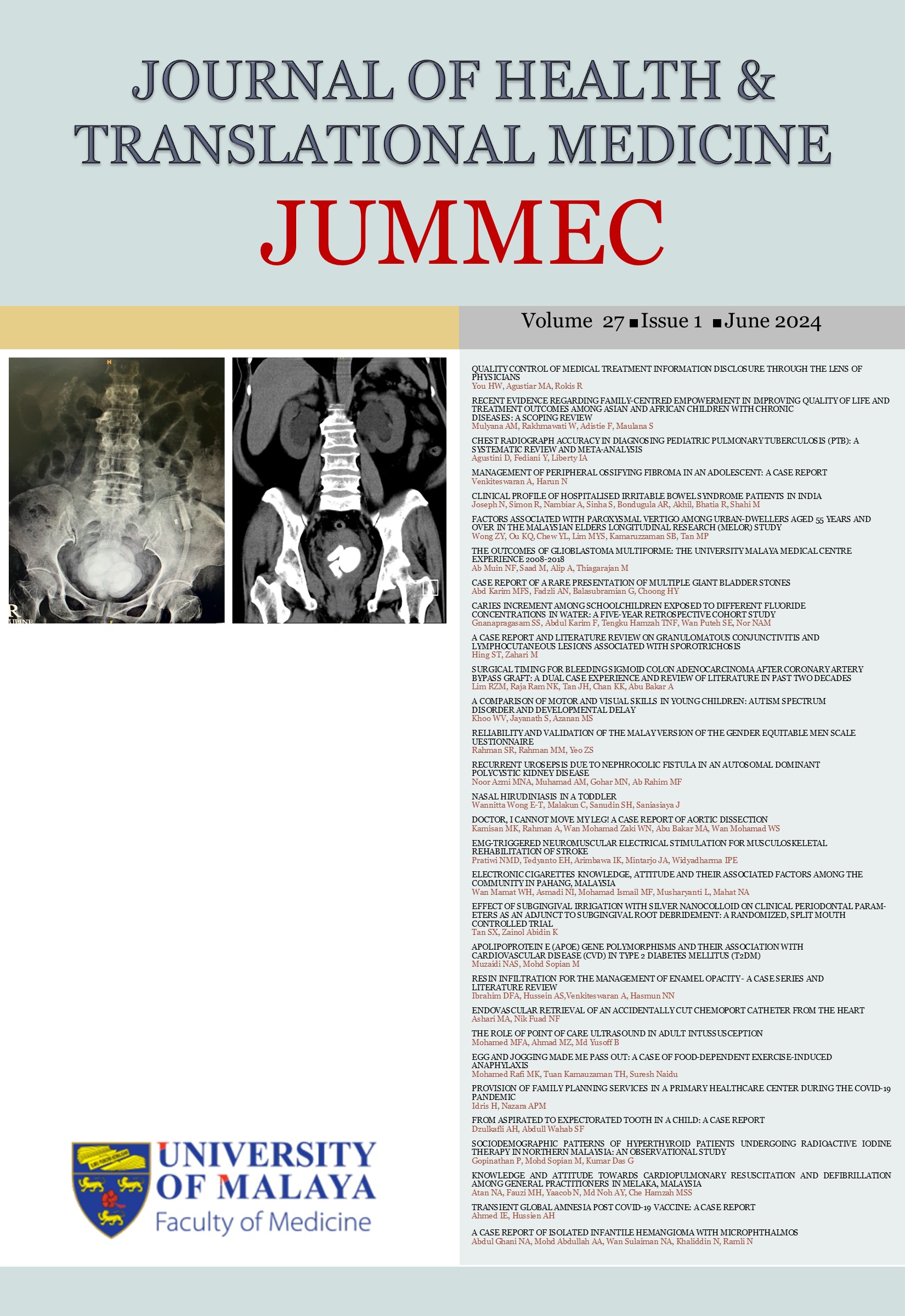CLINICAL PROFILE OF HOSPITALISED IRRITABLE BOWEL SYNDROME PATIENTS IN INDIA
Received 2023-03-17; Accepted 2023-07-28; Published 2024-01-02
DOI:
https://doi.org/10.22452/jummec.vol27no1.5Abstract
Introduction: Irritable bowel syndrome (IBS) is the most frequent functional gastrointestinal disorder. However due to poor health-seeking behaviour of the people and difficulties faced by medical professionals to diagnose IBS, it remains an under-diagnosed gastrointestinal disorder.
Objectives: To study the risk factors, clinical presentation, and management of IBS among in-patients admitted at two tertiary care hospitals in Mangalore.
Methods: Forty-one patients diagnosed with IBS based on ROME IV criteria between January 2017 to March 2021 were included. A semi-structured proforma was used to collect the required information.
Results: The mean age at diagnosis among the patients was 44.6 ± 17.8 years. Twenty-four (58.5%) of them were females. Family history of IBS was present among five (12.2%) patients. IBS-M [18 (43.9%)] was the most common type. Alarming signs like blood and mucus in the stools were present each among eight (19.5%) patients. Weight loss was the most common extra-intestinal symptom [nine (21.9%)]. Mental health problems and psychosomatic disorders were present among seven (17.1%) and six (14.6%) patients, respectively. The most common drug used to treat constipation was Ispaghula husk [17 (41.5%)], and to treat diarrhoea was Loperamide [14 (34.1%)]. As many as 15 (36.6%) patients did not improve with treatment. None of the patients were put on non-pharmacological therapies.
Conclusion: Holistic management of alarming signs such as blood and mucus in the stools and extra-intestinal symptoms like weight loss is required among IBS patients. Various mental health problems and psychosomatic disorders need to be screened and treated as a part of its management. Non-pharmacological therapies need to be also introduced to improve its treatment outcomes.
Downloads
Downloads
Published
Issue
Section
License
All authors agree that the article, if editorially accepted for publication, shall be licensed under the Creative Commons Attribution License 4.0 to allow others to freely access, copy and use research provided the author is correctly attributed, unless otherwise stated. All articles are available online without charge or other barriers to access. However, anyone wishing to reproduce large quantities of an article (250+) should inform the publisher. Any opinion expressed in the articles are those of the authors and do not reflect that of the University of Malaya, 50603 Kuala Lumpur, Malaysia.


